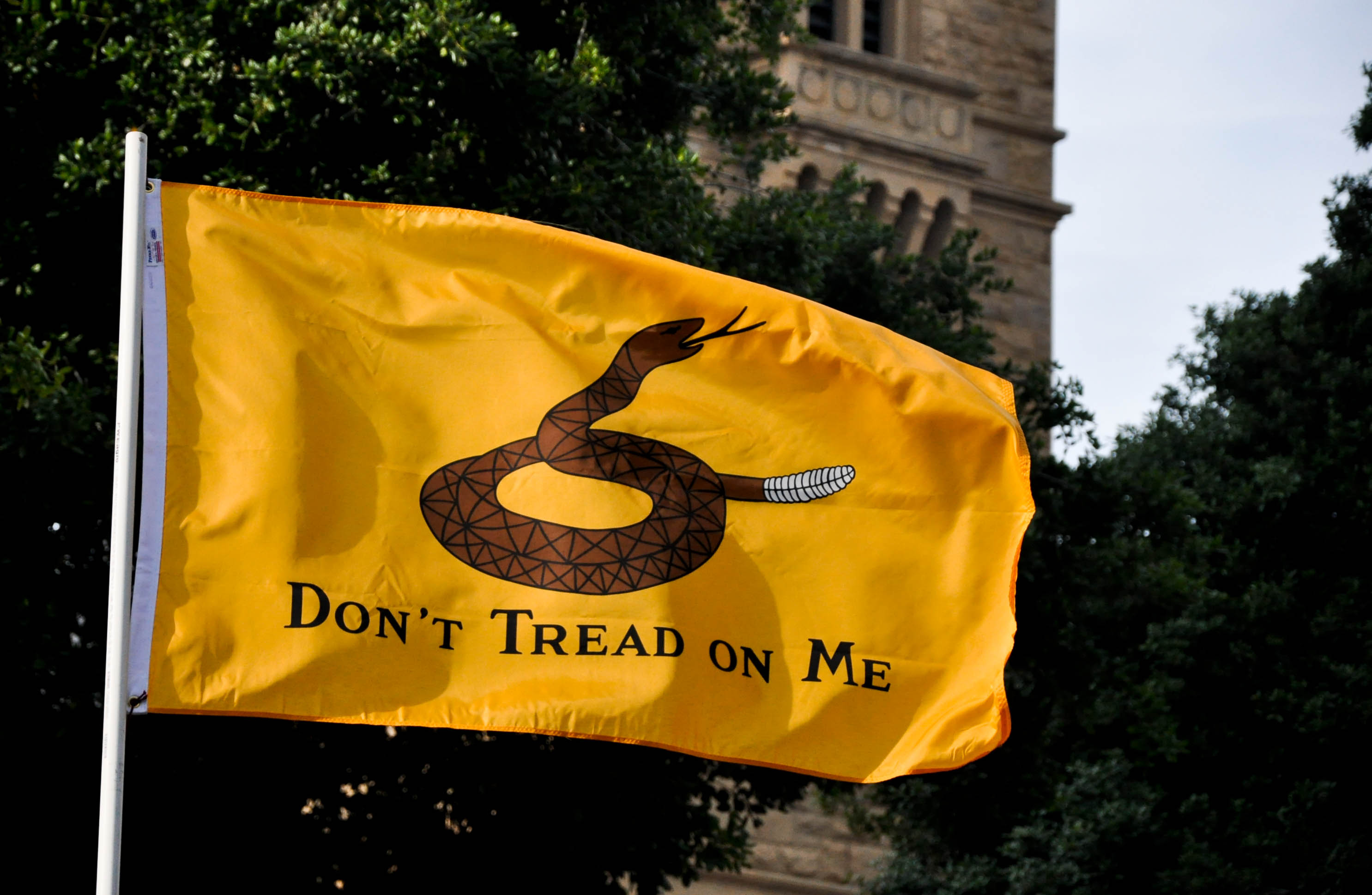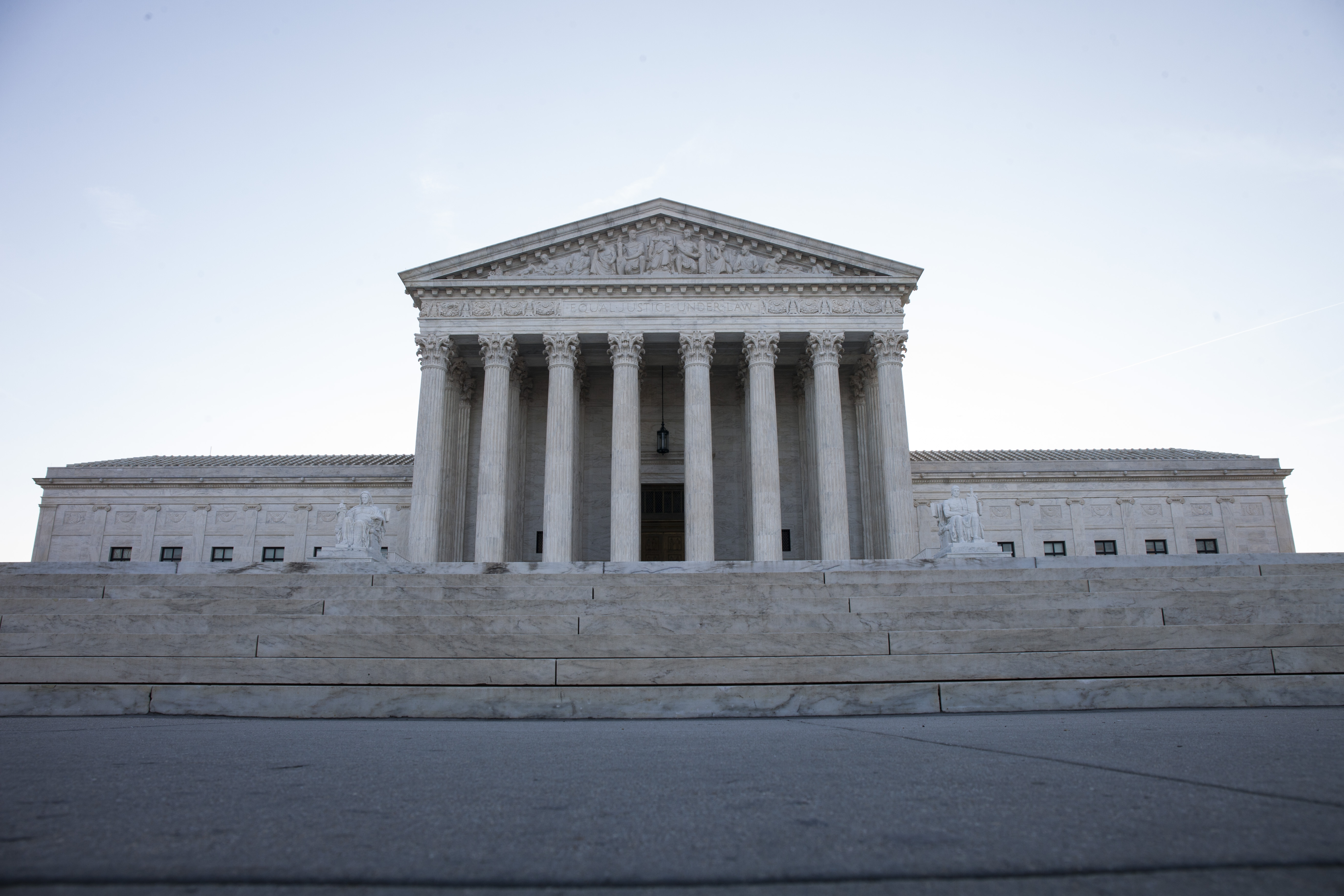Voting might be a form of free speech, but that doesn’t mean the right to free speech extends to voters’ outfits.
The United States Supreme Court is now hearing a case regarding Minnesota’s law that bars political clothing at polling booths, clothing that could include everything from “Make America Great Again” hats to “Black Lives Matter” T-shirts.
The battle began on Election Day 2010 when Andrew Cilek, a resident of Hennepin County, was told to change his shirt, which had the Tea Party slogan “Don’t Tread on Me,” and remove his Election Integrity Watch button endorsing voter ID laws that read “Please I.D. Me.”
Cilek says he was turned away from the voting booth twice on account of his get-up, though he was finally allowed to vote on his third try. He filed a lawsuit shortly thereafter against election officials for violating his rights under the First Amendment’s guarantee of free speech.
Minnesota law states that “political badge, political button or other political insignia may not be worn or about the polling place on primary or Election Day.”
Hennepin County’s lower district court agreed with Minnesota, citing the 1992 Supreme Court decision in Burson vs. Freeman, in which Justice Harry Blackmun, in the majority opinion, found that states had a right to establish a “restricted zone around polling places” if “necessary to serve the interest in protecting the right to vote freely and effectively.”
Cilek’s case reached the 8th U.S. Court of Appeals based in St. Louis, which similarly upheld the state law both times the case was heard, in 2013 and 2017, ruling that it helped maintain “peace, order, and decorum” at the voting sites.
But so far, the questions posed by the Supreme Court judges seem to suggest worry about how broadly the law can be applied.
Justice Neil Gorsuch asked, “How are we supposed to police the line?” Justice Elena Kagan asked about how shirts with phrases like “Make America Great Again” or “Resist” would be treated.
Justice Anthony Kennedy seemed to be leaning on the side of upholding the Minnesota law when he asked why should there be speech inside the election booth at all.

(Photo: jackiembarr/Flickr)
The State of Minnesota defends the law on the basis that it serves a purpose of maintaining the polling booth as a neutral place, free of influence, confusion, or the worsening of political tensions that might already exist.
Dan Rogan, senior attorney of Hennepin County Attorney’s Office, argued in favor of Minnesota’s law before the Supreme Court judges last week. He tells Pacific Standard that there is a historical reason for the Minnesota law, explaining that, around the time the provision about political clothing had been added, there was growth in the button industry that allowed for campaigns and other groups to tell their members to wear them in the voting booths, causing disruptions.
“I don’t think that it goes too far to have the prohibition be as broad as prohibiting people from wearing political material, as long as it is closely related to a campaign.” Rogan says. “It protects the polling place.”
Rogan says that Minnesota is “in the majority,” in terms of states with similar laws that discourage electioneering and campaign material in polling booths, though some states may use different language.
Technically, as agreed by both sides in the case, at least nine other states have similar laws on the books. But Wen Fa, an attorney with the Pacific Legal Foundation who is defending Cilek, says Minnesota is actually in the minority of states with such broad provisions.
“A lot of states have more narrow statues. And those states haven’t had any history of massive brawls at the polling place,” Fa says. “There’s really no evidence that Minnesota needs a law like that to promote decorum at the polling place.”
Michael McConnell, the director of the Constitutional Law Center at Stanford University and a senior fellow at the Hoover Institution, agrees and isn’t so sure that the purpose Minnesota suggests is enough to justify the reach of the law.

(Photo: Zach Gibson/Getty Images)
“I am skeptical that political messages on clothing can be coercive or intimidating. At the very least, the rule seems overly broad.” McConnell says.
While discussions of whether Tea Party and ID voter law insignia should be allowed in a voting place may seem to favor the right-leaning, a ban on political apparel has the potential to cut both ways and affect progressive voters as well.
The American Civil Liberties Union is siding with Fa and Cilek in the matter. In a press release, the ACLU announced it filed a brief in support of free speech rights.
John Gordon, executive director of the ACLU’s Minnesota branch, implied that the looseness of the Minnesota law could be used against progressives as well, stating: “Minnesota’s law forces voters to choose between self-expression and voting. A law as broad and vague as Minnesota’s could mean voters are turned away for wearing a #MeToo button or a Black Lives Matter T-shirt.”
Fa says that, although Minnesota law seems to pit the First Amendment against the right to vote, he believes that the law actually impedes voting rights.
“A lot of people on the other side have tried to frame this case as somehow putting the right to free speech against the right to vote.” Fa says. “When in reality, our case is about the right to free speech and the right to vote.”





